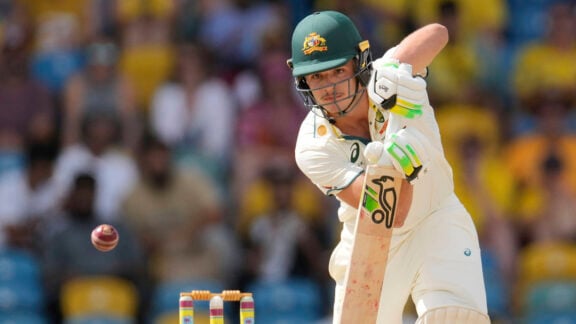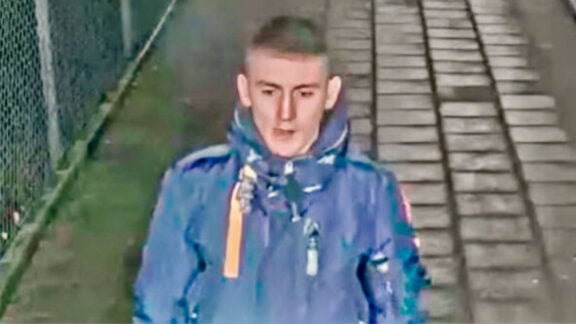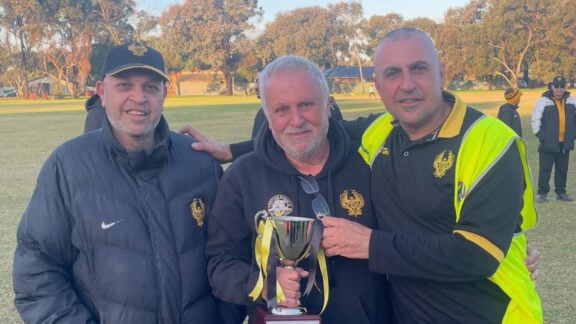“Tonight, as you sleep in your bed, one in every 200 Aussies are homeless,” and the numbers are only increasing says clinical forensic psychiatric nurse, Helen Andrianakis.
I’ve been crying out to the Greek community to build Greek residential units. We have enough nursing homes, we don’t need anymore
In her 27 years working for the Department of Justice, she has been exposed to the unthinkable and she is on a mission to bring attention to the plight of the homeless, mentally ill, and those battling drug and alcohol addiction.
As a Greek speaking nurse she says she is often assigned to cases of Greek Australians and says that she has noticed a significant increase, many of whom she says are newly arrived.
“Some have come to Melbourne with an addiction and they’ve come to family and the family aren’t going to put up with them because let’s face it, mental health and drug and alcohol aren’t sexy topics to the community,” Andrianakis told Neos Kosmos.
Of the clients that she sees, she says around 45 per cent are of Greek background, of whom 25 to 30 per cent are newly arrived.
She attributes the general increase in homelessness to a number of reasons including lack of employment opportunities, relationship breakdowns and a lack of support systems in place.
“These are humungous issues, and you know Rome wasn’t built in a day. You and I are so called ‘functioning’ and we will be patient, and we know how to wake up every morning with a routine and we’ll say, brush our teeth. These people are so dysfunctional in the sense that they lose control and they fall down and collapse when they have no stability,” she explains.
Contrary to popular belief, Andrianakis says that there are many who find themselves in these situations who come from a comfortable upbringing and good families. But there are others who have a history, and as is often the case in her experience, once their parents pass away, they can spiral even further out of control.
“While their mothers and fathers were alive nobody could touch the children. But once the mother and father pass away, the siblings are not going to put up with their behaviour. So they boot them out, or they restrict access, or cut their funding. And what happens after that? We fall into being homeless and the streets,” she explains.
“Like the scenario last night; the mother and father have passed away but had left it in the will that no one could basically kick out their child until they die. But the child started inviting every Mr Joe Blow in and they destroyed the house. So the siblings then went to VCAT and now this person’s homeless.”
A natural empath, while she tries to put herself in every clients shoes, she says when substances or mental illness are factors, it can be hard to reason with them.
“Trying to get them to take ownership of their behaviour that you got given a place, but you decided to invite the whole of Melbourne to come in, they can’t see reason with that. So what do they do? They attack their siblings, and the siblings think ‘I’m not going to put up with this. I’ve got my family’. And it’s really hard, I put myself in each client’s position I deal with, but I also put myself in the family’s position dealing with these people,” Andrianakis says.
While she says that there are a lot of disappointing aspects to her work, including cuts to budgets and funding, one that won’t cease to tug at her heart strings is seeing elderly migrants who came to Australia for a better life, now in their old age visiting their children or grandchildren in prison.
“I had an ethnic woman, her son died in a car accident, he was substance affected and she was left to raise her two granddaughters. Now they’ve taken on that path and she’s dumped with her great grandchildren. And she was telling me the other day ‘When is this going to end? It’s not going to end Helen.’ And the government does not give us any extra funding for these people because they don’t see drug and alcohol as a diagnosis because you take substances. So what happens to these people?
“She said to me ‘My great granddaughter is in jail Helen because she had no money. Centrelink cut her payments because she didn’t go to the appointments because she doesn’t have a telephone, she doesn’t have a mobile phone because she sells it. And when they were contacting her to go to the appointment, it wasn’t following up so they cut off her payments. She robs and she steals just to survive.'”
With the Turnbull Government looking to introduce drug testing for welfare recipients, now being trialled in three locations, which will see those testing positive given cashless welfare cards with their payments quarantined, Helen says that in some ways it has the potential to help, but in other ways it is going to be a disaster resulting in more aggression.
And while there are promises that those who fail the test more than once will be referred for medical assessment and treatment, she says she needs to see it to believe it.
“They’re going to have more outbursts because here they get released from prison and there’s a court order that you have to see your clinician once a fortnight and they don’t do that,” she reveals.
“So many things are promised and it never follows through. If that’s the case, great, but it has to happen there and then, not you have to make an appointment, and you have to make contact with services. Because you and I both know, clients will not make contact. Like I have clients who I organise for a detox and then there’s a waiting list to go to rehab here to Timbuktu, and then they’re back in jail again.”
If not, she says that it is likely to lead to a significant increase in violence and will only continue to perpetuate the cycle.
But instead of waiting for the government, Andrianakis is appealing to the Greek community to step up and give support to its own people in need and says a good step would be to build residential units.
“We need more residential units for long term clients to live. I’ve been crying out to the Greek community to build Greek residential units. We have enough nursing homes; we don’t need anymore. A place where they have access to help themselves,” and says a good model to follow would be that of Australia’s Jewish community.
“They have homes for their people; they have doctors and social workers downstairs. I propose a similar model. There are so many Greeks who could put their money into it.
“Mental illness or a disaster could happen to any of us, we don’t know what’s around the corner. We could make a bad business decision for example, or the banks could go down, we could lose our jobs and we have no money. What happens then? We don’t know what’s around the corner.”
* Helen Andrianakis also works with children battling addiction passed on through their mothers in the womb with complex care needs. In Australia in 2016, 446 children were removed from their parental home as it was determined that it was not a safe environment. To do her part for the most vulnerable of society, she has launched the Lean On Me campaign to raise much-needed funds.
“We want to go to the Greek singer that’s come out and we’re willing to pay however much a ticket is, but why not put $5 towards Lean on me?,” she urges.
To donate, visit gofundme.com/lean-on-me









